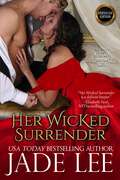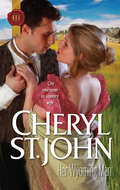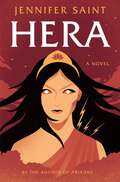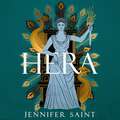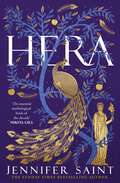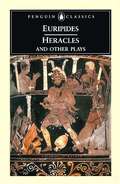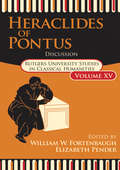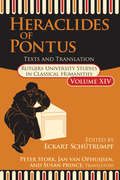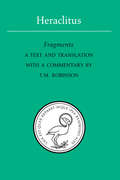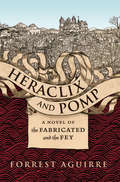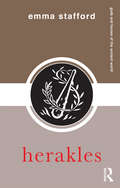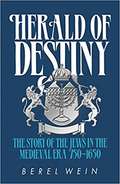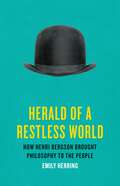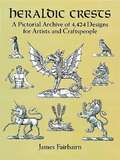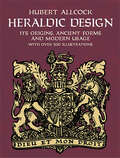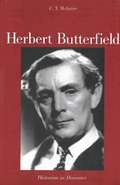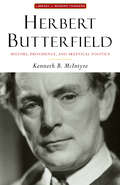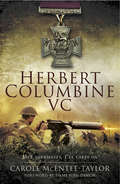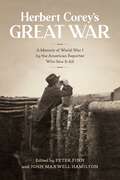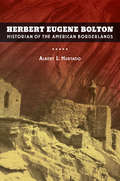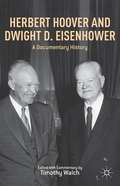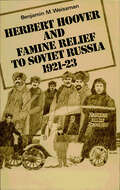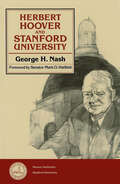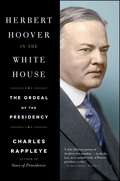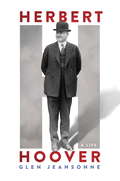- Table View
- List View
Her Wicked Surrender (Regency Hearts Redeemed Series #1)
by Jade Lee"Realistically dark, emotionally intense, and richly sensual." ~Booklist"One of the best historical romances I've read this year." ~The Romance ReaderBorn in a tavern to an actress, all Scher Martin has ever wanted is respectability and a family of her own. Then Kit Frazier, the fourth son of a titled family, offers for her, and Scher seizes her chance.But instead of family, Scher encounters ridicule, mockery and Kit's cousin, Viscount Blackstone.Scher sets Blackstone's heart afire with a single glance. He knows what she wants... what she deserves. But his life is a sham from which he cannot escape, his wealth and newly acquired title built on a public lie undergirded by murders no one will admit happened.Blackstone also knows Scher's heart beats only for him, and he belongs to another.REGENCY HEARTS REDEEMED, in series orderHer Wicked SurrenderHis Wicked SeductionOther Books by Jade Lee...REGENCY RAGS TO RICHES, in series orderNo Place for a LadyDevil's BargainAlmost an AngelThe Dragon Earl
Her Wyoming Man
by Cheryl St. JohnCourtesan Ella Reed escapes dangerous city life to rural Wyoming and says "I do" to a marriage of convenience! But she may not live the life of a respectable woman for long if she can't keep her past-and her heart-under lock and key.For a self-made man with political aspirations, love is trivial in a paper marriage. Nathan Lantry needs a wife to secure his election and manage his rowdy little boys. Yet he can't stop wanting more from his irresistible new bride. Then her secrets start to unravel....
Hera: A Novel
by Jennifer SaintFrom the #1 internationally bestselling author of Ariadne, Elektra, and Atalanta, a propulsive, empowering retelling of Hera, reclaiming her as a feminist hero Even the gods must have their queen.When the immortal goddess Hera and her brother Zeus overthrow their tyrannical father, she dreams of ruling at his side. But as they establish their reign on Mount Olympus, Hera begins to see that Zeus is just as ruthless and cruel as the father they betrayed. While Zeus ascends, Hera is relegated to the role of wife and mother, a role she never wanted. She was always born to rule, but must she lose herself in perpetuating this cycle of violence and cruelty? Or can she find a way to forge a better world? In this enthralling retelling, Greek mythology’s most famous and maligned goddess finally tells her own story, as power, passion, and divine strength collide in the heart of Olympus.
Hera: Bow down to the Queen of Mount Olympus
by Jennifer SaintThe beguiling story of the Queen of Mount Olympus, told by Jennifer Saint, the bestselling author of ATALANTA, ELEKTRA and ARIADNE.From Jennifer Saint, the bestselling author of ATALANTA (UK, Sunday Times, April 2023) ELEKTRA (UK, Sunday Times, May 2022) and ARIADNE (UK, Sunday Times, April 2021), comes the captivating story of Greek mythology's most famous wife.'A spirited retelling' Times | 'Beautiful and absorbing' Fabulous | 'A vivid reimagining of Greek mythology' Harper's Bazaar | 'Jennifer Saint has done an incredible job' Red When the immortal goddess Hera helps her brother Zeus to overthrow their tyrannical father, the ancient Titan Cronos, she dreams of ruling the world at his side. But as they establish their reign on Mount Olympus, Hera begins to see another side to Zeus, a side just as ruthless and cruel as Cronos was.She was clearly born to rule, but does that mean perpetuating a cycle of violence and cruelty that has existed since the dawn of time?Will assuming her power mean that Hera loses herself or can she find a way to forge a better world? Praise for Jennifer Saint:'Relevant and revelatory' Stylist'Energetic and compelling' Times(P) 2024 Headline Publishing Group Ltd
Hera: Bow down to the Queen of Mount Olympus
by Jennifer SaintThe enthralling tale of a powerful Greek goddess maligned in both myth and ancient history, as told by Sunday Times bestselling author Jennifer Saint.'An exceptional achievement' ELODIE HARPER 'A very special novel' COSTANZA CASATI 'The essential mythological book of the decade' NIKITA GILL When Hera, immortal goddess and daughter of the ancient Titan Cronus, helps her brother Zeus to overthrow their tyrannical father, she dreams of ruling at his side. As they establish their reign on Mount Olympus, Hera suspects that Zeus might be just as ruthless and cruel as the father they betrayed.She was always born to rule, but must she lose herself in perpetuating this cycle of violence and cruelty? Or can she find a way to forge a better world?Often portrayed as the jealous wife or the wicked stepmother, this retelling captures the many sides of Hera, vengeful when she needs to be but also compassionate and most importantly, an all-powerful queen to the gods. More praise for HERA:'A thrilling depiction' ELIZABETH FREMANTLE'Subtle, nuanced and utterly gorgeous' SARAH UNDERWOOD 'Jennifer Saint's best book yet' ROSIE HEWLETT 'Vast in scope and thoroughly entertaining' NIKKI MARMERY 'An absolutely triumph' JASMINE ELMER
Heracles and Other Plays
by EuripidesHeracles/ Iphigenia Among the Taurians/ Helen/ Ion/ Cyclops: Of these plays, only 'Heracles' truly belongs in the tragic sphere with its presentation of underserved suffering and divine malignity. The other plays flirt with comedy and comic themes. Their plots are ironic and complex with deception and elusion eventually leading to reconciliation between mother and son in 'Ion', brother and sister in 'Iphigenia', and husband and wife in 'Helen'. The comic vein is even stronger in the satyric'Cyclops' in which the giant's inebriation and subsequent violence are treated as humorous. Together, these plays demonstrate Euripides' challenge to the generic boundaries of Athenian drama.
Heraclides of Pontus: Discussion (Rutgers University Studies in Classical Humanities)
by William W. Fortenbaugh Elizabeth PenderHeraclides of Pontus hailed from the shores of the Black Sea. He studied with Aristotle in Plato's Academy, and became a respected member of that school. During Plato's third trip to Sicily, Heraclides served as head of the Academy and was almost elected its head on the death of Speusippus.Heraclides' interests were diverse. He wrote on the movements of the planets and the basic matter of the universe. He adopted a materialistic theory of soul, which he considered immortal and subject to reincarnation. He discussed pleasure, and like Aristotle, he commented on the Homeric poems. In addition, he concerned himself with religion, music and medical issues. None of Heraclides' works have survived intact, but in antiquity his dialogues were much admired and often pillaged for sententiae and the like.The contributions presented here comment on Heraclides' life and thought. They include La Tradizione Papirologica di Eraclide Pontico by Tiziano Dorandi, Heraclides' Intellectual Context by Jorgen Mejer, and Heraclides of Pontus and the Philosophical Dialogue by Matthew Fox. There is also discussion of Heraclides' understanding of pleasure and of the human soul: Heraclides on Pleasure by Eckart Schutrumpf and Heraclides on the Soul and Its Ancient Readers by Inna Kupreeva. In addition, there are essays that address Heraclides' physics and astronomical theories: Unjointed Masses: A Note on Heraclides Physical Theory by Robert W. Sharples; Heliocentrism in or out of Heraclides by Paul T. Keyser, The Reception of Heraclides' Theory of the Rotation of the Earth from Posidonius to Simplicius: Texts, Contexts and Continuities by Robert B. Todd and Alan C. Bowen, and Heraclides of Pontus on the Motions of Venus and Mercury by Alan C. Bowen and Robert B. Todd. Finally, there are essays that view Heraclides from the stand point of ancient medicine, literary criticism and musical theory: Heraclides on Diseases and on the Woman Who Did Not Breathe by
Heraclides of Pontus: Texts, Translation, and Discussion (Rutgers University Studies In Classical Humanities Ser.)
by Eckart SchutrumpfHeraclides of Pontus hailed from the shores of the Black Sea. He studied with Aristotle in Plato's Academy, and became a respected member of that school. During Plato's third trip to Sicily, Heraclides served as head of the Academy and was almost elected its head on the death of Speusippus. His interests were diverse. He wrote on the movements of the planets and the basic matter of the universe. He adopted a materialistic theory of soul, which he considered immortal and subject to reincarnation. He discussed pleasure, and like Aristotle, he commented on the Homeric poems. In addition, he concerned himself with religion, music, and medical issues. None of Heraclides' works have survived intact, but in antiquity his dialogues were much admired and often pillaged for sententiae and the like. The volume contains a new edition of the sources for Heraclides' life and thought. The text is by Eckart Schutrumpf and the translation by Peter Stork, Jan van Ophuijsen, and Susan Prince. The discussion of the sources includes contributions by twelve scholars: "La Tradizione Papirologica di Eraclide Pontico" by Tiziano Dorandi; "Heraclides' Intellectual Context" by Jorgen Mejer; "Heraclides of Pontus and the Philosophical Dialogue" by Matthew Fox; "Heraclides on Pleasure" by Eckart Schutrumpf; "Heraclides on the Soul and Its Ancient Readers" by Inna Kupreeva; "Unjointed Masses: A Note on Heraclides Physical Theory" by Robert W. Sharples; "Heliocentrism in or out of Heraclides" by Paul T. Keyser; "The Reception of Heraclides' Theory of the Rotation of the Earth from Posidonius to Simplicius: Texts, Contexts and Continuities" by Robert B. Todd and Alan C. Bowen; "Heraclides of Pontus on the Motions of Venus and Mercury by Alan C. Bowen and Robert B. Todd; "The Woman Not Breathing" by Philip van der Eijk; "Heraclides of Pontus on Homer" by Malcolm Heath; and "Heraclides and Musical History" by Andrew Barker.
Heraclitus
by T. M. RobinsonThe Phoenix Pre-Socratic series is designed for modern students of the Pre-Socratic philosophers. This volume provides the Greek text of Heraclitus with a new, facing page translation together with a commentary outlining the main problems of interpretation and the philosophical issues raised by Heraclitus' work. The volume also contains an English translation of substantial material from the ancient testimonia concerning Heraclitus' life and teaching, and offers selective bibliographic guidance.While much of the commentary follows lines of interpretation that have won general acceptance, it differs from many in its claim that the logos of which Heraclitus speaks in fragments 1, 2 and 50 means, essentially, 'statement.' This statement, uttered in words by Heraclitus, reflects that statement everlastingly uttered by the cosmos itself, which descriptively tells of how things are and prescriptively lays don patterns of cosmic activity that serve as the basis for human laws (fragment 114).
Heraclix and Pomp
by Forrest AguirreHeraclix was dead and Pomp was immortal. That was before Heraclix's reanimation (along with the sewn-together pieces and parts of many other dead people) and Pomp's near murder at the hands of an evil necromancer. As they travel from Vienna to Prague to Istanbul and back again (with a side-trip to Hell), they struggle to understand who and what they are: Heraclix seeks to know the life he had before his death and rebirth, and Pomp wrestles with the language and meaning of mortality. As they journey across a land rife with revolution and unrest, they discover that the evil necromancer they thought dead might not be so dead after all. In fact, he might be making a pact to ensure his own immortality . . .
Herakles (Gods and Heroes of the Ancient World #Vol. 10)
by Emma StaffordThere is more material available on Herakles than any other Greek god or hero. His story has many more episodes than those of other heroes, concerning his life and death as well as his battles with myriad monsters and other opponents. In literature, he appears in our earliest Greek epic and lyric poetry, is reinvented for the tragic and comic stage, and later finds his way into such unlikely areas as philosophical writing and love poetry. In art, his exploits are amongst the earliest identifiable mythological scenes, and his easily-recognisable figure with lionskin and club was a familiar sight throughout antiquity in sculpture, vase-painting and other media. He was held up as an ancestor and role-model for both Greek and Roman rulers, and widely worshipped as a god, his unusual status as a hero-god being reinforced by the story of his apotheosis. Often referred to by his Roman name Hercules, he has continued to fascinate writers and artists right up to the present day. In Herakles, Emma Stafford has successfully tackled the ‘Herculean task’ of surveying both the ancient sources and the extensive modern scholarship in order to present a hugely accessible account of this important mythical figure. Covering both Greek and Roman material, the book highlights areas of consensus and dissent, indicating avenues for further study on both details and broader issues. Easy to read, Herakles is perfectly suited to students of classics and related disciplines, and of interest to anyone looking for an insight into ancient Greece’s most popular hero.
Herald of Destiny: The Story of the Jews in the Medieval Era 750-1650
by Rabbi Berel WeinTo modern man, the Middle Ages is a distant, mysterious and forbidding period. It is primitive in technology, brutal in violence, and superstitious and servile in society. But it was also a time of pageant and grandeur, of discovery and wonder, of great achievements and lasting progress, when men of genius and industry laid the foundations for our modern world. Those who have preceded us have in the main been neglected in our assessment of current life. <p><p> Jews in the Middle Ages achieved great heights of power, wealth, scholarship and creativity - the Golden Age of Spain, of Rashi and the Tosafists, R' Yehuda Halevi and Maimonides. The Jews were part of the Renaissance, the catalysts for the Reformation, sponsors of arts, exploration, and commerce. But it was also a terrible time for Israel. The Almohad persecutions, the Crusades, the Black Death, the burning of the Talmud in Paris, the bitter rivalries, and quarrels within Jewish society itself all combined to paint the era in blood and despair. <p><p> Rabbi Berel Wein, in this book, has woven an informative tapestry out of the events of the Jewish Middle Ages. Its historic figures come alive and we appreciate their greatness. The Sephardic world and the Ashkenazic society, the longing for Zion and redemption, the intrigues and truths of history are here faithfully explained. The story of the Jewish people in the Medieval Era is told with wit, knowledge, accuracy and emotion. As in Triumph of Survival, Rabbi Wein has not settled merely for a history of the Jews. Herald of Destiny will make our modern Jewish milieu and its problems more understandable by illuminating for us the great medieval Jewish world that preceded us.
Herald of a Restless World: How Henri Bergson Brought Philosophy to the People
by Emily HerringThe first English-language biography of Henri Bergson, the French philosopher who defined individual creativity and transformed twentieth-century thought—a &“fascinating biography and magnificent revival of this brilliant thinker&” (Skye Cleary, author of How to Be Authentic) At the dawn of the twentieth century, Henri Bergson (1859–1941) became the most famous philosopher on earth. Where prior thinkers sketched out a deterministic, predictable universe, he asserted the transformative power of consciousness and creativity. An international celebrity, he made headlines around the world debating luminaries like Bertrand Russell and Albert Einstein about free will and time. The vision of creative evolution and freedom he presented was so disruptive that the New York Times branded him &“the most dangerous man in the world.&” In Herald of a Restless World, Emily Herring recovers how Bergson captivated a society in flux. She shows how his celebration of the time-bending uniqueness of individual experience struck a chord with those shaken by modern technological and social change. Long after he faded from public view, his insights into memory, time, laughter, and creativity continue to shape how we see the world around us. Herald of a Restless World is an electrifying portrait of a singular intellect. Bergson&’s extraordinary insight into life&’s fundamental questions remains urgent and relevant to this day.
Heraldic Crests: A Pictorial Archive of 4,424 Designs for Artists and Craftspeople (Dover Pictorial Archive)
by James FairbairnRich selection of royalty-free motifs from famous British reference. Striking, varied designs suitable for any number of graphic projects. Images include lions, tigers, wreaths, falcons, rosettes, human figures, mythical creatures, crowns, and much more. Add aristocratic flair to book and magazine illustrations, advertisements, newsletters, etc.
Heraldic Design: Its Origins, Ancient Forms and Modern Usage
by Hubert AllcockThrough the ages, as warfare and competitive rituals became more elaborate, heraldry evolved into an exact art and science. Used to denote accomplishments as well as the genealogies of outstanding individuals and families, these symbols survived the way of life that created them.This remarkably rich sourcebook of royalty-free designs describes the origins and ancient forms of heraldic devices, shields, and trademarks. Over 500 black-and-white drawings trace the history and meaning of the coat, shield, crests, helmets, blazonry, and "attitudes and attributes" of symbols, with considerable attention given to devices such as beasts, monsters, and human and part-human figures. American, British, French, Russian, and other coats of arms are displayed, as are insignias of the Pope and clergy, state seals, and emblems of many modern institutions. In addition to personal, commercial, and family arms, chapters also provide information on the use of heraldry in advertising, brand-labeling, and related fields.A valuable visual reference for anyone interested in genealogy, these handsome images will add a touch of class to a variety of art and craft projects.
Herbert Butterfield: Historian as Dissenter
by C. T. McintireHerbert Butterfield (1900-1979) was an important British historian and religious thinker whose ideas, in particular his concept of a "Whig interpretation of history," remain deeply influential. In this intellectual biography--the first comprehensive study of Butterfield--C. T. McIntire focuses on the creative processes that lay behind Butterfield's intellectual accomplishments. Drawing on his investigations into Butterfield's vast and diverse output of published and unpublished work, McIntire explores Butterfield's ideas and methods. He describes Butterfield's lifelong devotion to his Methodist faith and shows how his Christian spirituality animated his historical work. He also traces the theme of dissent that ran through Butterfield's life and work, presenting a man who found himself at odds with prevailing convictions about history, morality, politics, religion, and teaching, a man who elevated the notion of dissent into an ethic of living in tension with any established system. "This important and,original work is an intellectual biography that focuses on the life and achievements of a major historian in mid-twentieth-century England." --Martin E. Marty, University of Chicago
Herbert Butterfield: History, Providence, and Skeptical Politics (Library Modern Thinkers Ser.)
by Kenneth Mcintyre"The most original historian of his generation"That is how the celebrated British academic Noel Annan described Herbert Butterfield (1900-1979), a profound and prolific writer who made important contributions as both a public and academic historian.In this authoritative and accessible intellectual biography, Kenneth B. McIntyre explores the extraordinary range of Butterfield's work. He shows why the small book The Whig Interpretation of History (1931) achieved such large influence; Butterfield, he demonstrates, has profoundly shaped American and European historiography by highlighting the distortions that occur when historians interpret the past merely as steps along the way toward the glorious present.But McIntyre delves much deeper, examining everything from Butterfield's lectures on history, historiography, and Christianity, to his warnings about the dangers of hubris in international affairs, to his essays on the origins of modern science, which basically created the modern discipline of the history of science.This latest volume in ISI Books' acclaimed Library of Modern Thinkers helps us understand a prescient and insightful thinker who challenged dominant currents in history, historiography, international relations, and politics.
Herbert Columbine VC
by Carole McEntee-Taylor'Save Yourselves, I'll carry on'. These were the last known words of Herbert Columbine, shouted at his two companions on the afternoon of 22nd March 1918. At 9am that morning, in Hervilly Woods, France, 9 Squadron Machine Gun Corps had come under intense attack from a heavy force of German infantry. Private Columbine took command of an isolated gun, with no wire in front and began firing. As the German onslaught grew and casualties mounted, Herbert and two others eventually became separated from the rest of their Squadron. After several hours it became clear their position would soon be overrun so Herbert told them to escape while they could. Now on his own, Herbert hung on tenaciously, repelling several attacks, each one deadlier than the last. He was only defeated after the Germans bought up air support and dropped a bomb on his position. Herbert Columbine has no known grave.All author royalties from the sale of this book go to the Columbine Statue Fund of which Dame Judi Dench is Patron. This is a project to raise money for a lasting memorial to Herbert Columbine in his home town of Walton onthe Naze, Essex. For more information please visit www.carolemctbooks.info/herbert-columbine-vc/
Herbert Corey’s Great War: A Memoir of World War I by the American Reporter Who Saw It All
by Peter Finn and John Maxwell HamiltonIn 1914, the Associated Newspapers sent correspondent Herbert Corey to Europe on the day Great Britain declared war on Germany. During the Great War that followed, Corey reported from France, Britain, and Germany, visiting the German lines on both the western and eastern fronts. He also reported from Greece, Italy, Switzerland, Holland, Belgium, and Serbia. When the Armistice was signed in November 1918, Corey defied the rules of the American Expeditionary Forces and crossed into Germany. He covered the Paris Peace Conference the following year. No other foreign correspondent matched the longevity of his reporting during World War I. Until recently, however, his unpublished memoir lay largely unnoticed among his papers in the Library of Congress.With publication of Herbert Corey’s Great War, coeditors Peter Finn and John Maxwell Hamilton reestablish Corey’s name in the annals of American war reporting. As a correspondent, he defies easy comparison. He approximates Ernie Pyle in his sympathetic interest in the American foot soldier, but he also told stories about troops on the other side and about noncombatants. He is especially illuminating on the obstacles reporters faced in conveying the story of the Great War to Americans. As his memoir makes clear, Corey didn’t believe he was in Europe to serve the Allies. He viewed himself as an outsider, one who was deeply ambivalent about the entry of the United States into the war. His idiosyncratic, opinionated, and very American voice makes for compelling reading.
Herbert Eugene Bolton
by Albert L. HurtadoThis definitive biography offers a new critical assessment of the life, works, and ideas of Herbert E. Bolton (1870-1953), a leading historian of the American West, Mexico, and Latin America. Bolton, a famous pupil of Frederick Jackson Turner, formulated a concept--the borderlands--that is a foundation of historical studies today. His research took him not only to the archives and libraries of Mexico but out on the trails blazed by Spanish soldiers and missionaries during the colonial era. Bolton helped establish the reputation of the University of California and the Bancroft Library in the eyes of the world and was influential among historians during his lifetime, but interest in his ideas waned after his death. Now, more than a century after Bolton began to investigate the Mexican archives, Albert L. Hurtado explores his life against the backdrop of the cultural and political controversies of his day.
Herbert Hoover and Dwight D. Eisenhower
by Timothy WalchBringing together core selections from and analysis of material documenting the uneasy collaboration between Herbert and Eisenhower, this collection incisively uses primary sources to illuminate the 1952 Republican nomination fight, the second Hoover Commission, and other key episodes during the Eisenhower presidency.
Herbert Hoover and Famine Relief to Soviet Russia, 1921–1923
by Benjamin M. WeissmanIn 1921 one of the most devastating famines in history threatened the lives of millions of Russians as well as the continuance of Soviet rule. Responding to a plea for help from the Soviet government, the American Relief Administration (ARA) agreed to provide famine relief in the stricken areas. The ARA was a private relief organization headed by Herbert Hoover, then U.S. secretary of commerce and one of the best-known Americans of his time for his spectacular success in rescuing the population of Belgium from starvation during World War I and in feeding millions of Europeans during the Armistice. Hoover was also a retired capitalist of considerable wealth, a champion of Republican liberalism, and a leading opponent of recognition of Soviet Russia. Lenin—head of the Soviet government, leader of the Bolshevik party, and living symbol of world revolution—was the antithesis of the ARA's chief. This book studies the personalities, motives, and modi operandi of these two celebrated figures, both as individuals and as representatives of their societies. At the same time it considers the relief mission itself, which has been the subject of continuing controversy for fifty years. Its partisans see it as a charitable, nonpolitical enterprise, while its enemies judge it an anti-Soviet intervention entirely devoid of humanitarian purpose. Herbert Hoover and Famine Relief for Soviet Russia is the first major attempt by an American scholar to reexamine the ARA mission, on the basis of much material made available since the ARA's 1927 official history. What emerges is, on the one hand, a painstaking examination of the historical details of ARA's mission and, on the other hand, a philosophic essay relating the ARA to broader questions of U.S.-Soviet relations the ideological antitheses of Hoover and Lenin. The author concludes that both sides overcame their ideological antagonisms and made possible a spectacularly successful relief mission that inspired the vain hope that a new era in Soviet-American relations had begun.
Herbert Hoover and Stanford University
by George H. NashGeorge Nash's research reveals the enduring ties that bound Hoover to Stanford University.
Herbert Hoover in the White House: The Ordeal of the Presidency
by Charles Rappleye"A deft, filled-out portrait of the thirty-first president...by far the best, most readable study of Hoover's presidency to date." --Publishers Weekly Rappleye's surprising portrait of a Depression-era president Herbert Hoover reveals a very different figure than the usual Hoover, engaged and active but loathe to experiment and conscious of his inability to convey hope to the country.Herbert Clark Hoover was the thirty-first President of the United States. He served one term, from 1929 to 1933. Often considered placid, passive, unsympathetic, and even paralyzed by national events, Hoover faced an uphill battle in the face of the Great Depression. Many historians dismiss him as merely ineffective. But in Herbert Hoover in the White House, Charles Rappleye draws on rare and intimate sources--memoirs and diaries and thousands of documents kept by members of his cabinet and close advisors--to reveal a very different figure than the one often portrayed. The real Hoover, argues Rappleye, just lacked the tools of leadership. The Hoover presented here will come as a surprise to both his longtime defenders and his many critics. In public Hoover was shy and retiring, but in private he is revealed as a man of passion and sometimes of fury, a man who intrigued against his enemies while fulminating over plots against him. Rappleye describes him as more sophisticated and more active in economic policy than is often acknowledged. We see Hoover watching a sunny (and he thought ignorant) FDR on the horizon. FDR did not "cure" the depression, but he experimented with steps that relieved it. Most importantly he broke the mood of doom almost immediately. The Hoover we see here--bright, well meaning, energetic--lacked the single critical element to succeed as president. He had a first-class mind and a second-class temperament. Herbert Hoover in the White House is an object lesson in the most, perhaps only, talent needed to be a successful president--the temperament of leadership.
Herbert Hoover: A Life
by Glen JeansonnePrizewinning historian Glen Jeansonne delves into the life of our most misunderstood president, offering up a surprising new portrait of Herbert Hoover—dismissing previous assumptions and revealing a political Progressive in the mold of Theodore Roosevelt, and the most resourceful American since Benjamin Franklin. <P><P> Orphaned at an early age and raised with strict Quaker values, Hoover earned his way through Stanford University. His hardworking ethic drove him to a successful career as an engineer and multinational businessman. After the Great War, he led a humanitarian effort that fed millions of Europeans left destitute, arguably saving more lives than any man in history. As commerce secretary under President Coolidge, Hoover helped modernize and galvanize American industry, and orchestrated the rehabilitation of the Mississippi Valley after the Great Flood of 1927. <P> As president, Herbert Hoover became the first chief executive to harness federal power to combat a crippling global recession. Though Hoover is often remembered as a “do-nothing” president, Jeansonne convincingly portrays a steadfast leader who challenged congress on an array of legislation that laid the groundwork for the New Deal. In addition, Hoover reformed America’s prisons, improved worker safety, and fought for better health and welfare for children. Unfairly attacked by Franklin D. Roosevelt and blamed for the Depression, Hoover was swept out of office in a landslide. Yet as FDR’s government grew into a bureaucratic behemoth, Hoover became the moral voice of the GOP and a champion of Republican principles—a legacy re-ignited by Ronald Reagan and which still endures today.<P> A compelling and rich examination of his character, accomplishments and failings, this is the magnificent biography of Herbert Hoover we have long waited for.
